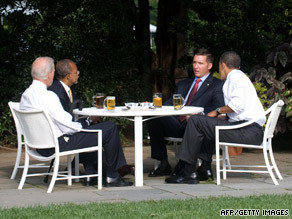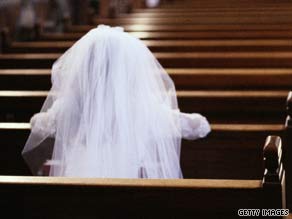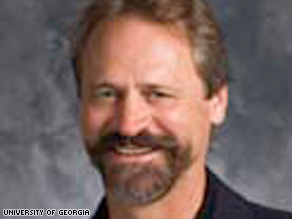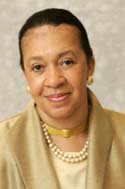
Smart Money Tips With
Dr. Boyce Watkins
Posted Jan 27th 2009 6:34PM by Alexis Stodghill
Filed under: Money Talks
By Alexis Garrett Stodghill, BlackVoices.com
Dr. Boyce Watkins is a renowned scholar and speaker in the area of finance. As an African-American financial expert, Dr. Watkins has made it his personal mission to educate our community through writing books and essays, making media appearances, public speaking and more -- so that we may become more empowered with knowledge when it comes to the all-mighty dollar. BlackVoices.com asked the doctor to share his wisdom and advice for folks seeking tips to successfully navigate the current economic storm. According to Dr. Watkins, it's still possible to get your finances in order -- in fact, it's imperative.
As a black finance expert, what is the most common problem you see in the black community when it comes to personal finance management?
The most common problem is that historically, African Americans have been excluded from the opportunity to build wealth. Money was made from our labor, but we never got much of it. That led to a laborer mentality in African-Americans that taught us how to go out and get jobs rather than learning the art of CREATING jobs. This problem was further exacerbated by the fact that building a company requires capital, which we typically don't have. Most African-Americans have far lower inheritance levels than whites, and this impacts your economic opportunities in life. Also, when you've never had much money, you are usually not very good at managing it, so we are as bad as the rest of America when it comes to our spending, saving, investing and borrowing habits.
How would you suggest that someone with little knowledge of personal finance get started on the road to financial stability?
First, get educated. Empower yourself with financial literacy. The greatest university in the world is called Google.com. You can research any topic you want. Secondly, start small. You don't have to conquer the world in two steps. Just start by saving 10% of your income. You might say you don't have money to save, but you actually do. If your boss came into your office and gave you a 10% paycut, you'd find a way to survive. Find a way to learn to save. Finally, get a "side hustle." Challenge yourself to find small ways to supplement your income. The riskiest thing to do in this economy is to get all of your personal income from one source.
You have two college degrees, a master's degree and a PhD. What would you say is the relationship between level of education and income?
Education not only gives you many opportunities to earn more money, you usually earn more money with less work, doing a job that you might actually like. Personally, education was the difference for me between being financially well off and living a life of poverty. Education also provides job security, which is often overlooked. Autoworkers, for example, were always able to make high wages with little education. But once the Big Three started to buckle, they were stuck with unskilled labor opportunities. Everyone should get as much education as they can get, since education can be a path to both a wealthy bank account and a wealthy life.
Would you share some tips for sound money management in 2009?
Yes.
-First, keep investing, especially in the stock market. When the market is low, that's the best time to find cheap stocks. Then hold on to your investments in a well-diversified portfolio (meaning, keep your money spread out). Before you know it, the downturn will have put money in your pocket.
- Learn to adjust your financial habits. Part of the reason we are in this mess is because Americans were borrowing too much money and working hard to live paycheck to paycheck. Get out of that habit, because the government is not going to be able to save us for much longer.
- Cut the toxins out of your life. If you have any bad habits or bad people draining you of your resources (a relative, a friend, or even yourself), renegotiate that relationship from one that is financially destructive to one that can be productive. For example, you may have to cut the financial umbilical chord from a dependent child, or tell that brother that he can't borrow money from you anymore. Cut the toxic energy out of your life so you can rethink your way of seeing money.
You have written extensively on love and money issues. What is your advice for best blending marriage and finances?
In 'Financial Lovemaking,' I tell couples to "find a rhythm." Merging your money is the same as merging your body (ie. sex): No one can tell you how to do it, since we all enjoy different things. You find out what your partner needs, share your own needs and then find a way to make the process comfortable and fulfilling for both parties. If your partner is a saver, then you need to respect that. Given that there is usually a deeply psychological reason that your partner is a saver, you are in serious trouble if you have habits that create financial instability in your relationship. Also, MAKE SURE you know what you're getting into: Many couples focus solely on love, lust, and physical appearance and spend almost no time observing the financial disposition and habits of their partners before making this major commitment. That is a recipe for disaster.
Before you commit your life, your future, your children and your money to someone, remember that LOVING together means LIVING together. If someone is financially irresponsible or brings a set of (what I call) "financial venereal diseases" into your life, it is going to be hard to live with them. You should check the debt levels, income levels and credit score of anyone to whom you choose to commit. Make sure they don't have any financially destructive habits, like alcoholism, drug abuse, gambling, or even the shopaholic's disease. Make sure that your financial values are in line with your partner's: For example, don't marry a woman who needs a $40,000 engagement ring if you think that a $500 ring should do the trick.
If you don't ask the hard questions, you can be locked into something with someone who literally destroys your life later down the road.
What is your opinion of the current recession? What is the best way to weather it?
The current recession may very well be the tip of the iceberg. There are serious long-term problems with our economy, and the break down of our financial system is merely a symptom of bigger issues. Additionally, this recession has a deeper problem. It is occurring during a time in which our global financial markets are integrated unlike at any other time in world history. That means that we are dealing with a problem of historic proportions on a landscape on which we've never operated.
The best way to cope with the recession is, in part, through what the government is already doing: Utilizing massive fiscal stimulus plans and encouraging global cooperation. Two other things they could have done are a) to have not wasted 700 billion dollars persuading Americans that Wall Street Bankers need to be protected, and b) to have spent more time helping Americans adjust their expectations.
President Obama seems to be trying to manage expectations, but he has already set the bar very high with his long list of campaign promises. The economic problem for Obama is that it will be extremely difficult to boost our economy back to where it was before, particularly since much of our financial gains over the past 7 years were illusions created through easy access to credit and a poorly regulated financial system. It's similar to an athlete on steroids trying to get off the drugs and then regain old form. It's very difficult to do.
On an individual level, I encourage families to remember that the government may not be there to take care of you in retirement. If you are not saving for retirement, it is critical that you do so. You should also find ways to structure care for the elderly in your family so that they are going to be OK. Also, tighten your own belts and get out of the habit of living from paycheck to paycheck. This is not a secure economy, and seemingly financially stable companies are disappearing overnight. The riskiest thing you can do in this economy is to get all of your income from one source. Find a way to make money from multiple avenues.
What has inspired you to come this far with so much self-determination, as a black man who was born to a single teen mom, then becoming a teen parent yourself?
I wake up every single day with a purpose. Dr. King and Malcolm X died young, so I never knew how much time I will have. But I am absolutely determined not to waste a single day and do all I can to help reshape what it means to be a black scholar and black leader in America. When I get emails from young people telling me that I've inspired them to change their thinking, then I know I've done my work. I know that I am not going to be on this earth forever, but I love the idea that I can impact people in such a way that the spiritual influence can last for generations.
I realized that most black professors are scared into being quiet on social issues, due to heavy political ramifications for speaking up. I also realized that many of us would rather sit in the ivory tower than to take our knowledge to the world. I never wanted to do that, and I've always felt that the role of the Black scholar in America is to use his/her knowledge to enlighten the world and uplift his/her people. That is my mission, and it is something I will continue to do until the day I die.
I also learned that it is not enough to be intelligent. You must be courageous and also sure of who you are. If you seek your validation from your historical oppressors, you will always end up chasing your own tail. Additionally, there are a long list of problems that need to be solved within our community, and it's up to all of us to do whatever we can to try and solve them.
Are there any words of encouragement or wisdom that you would like to share with the BlackVoices.com audience?
I realized a few things long ago that carry me to this day:
1) Success doesn't happen by accident. You must be deliberate with your actions and think carefully about where you invest your life, your love, your energy and your time. Everything must be proactive.
2) Extraordinary outcomes only come through extraordinary efforts. In life, you get what you give. So, if you want more, you must sacrifice more. You must be willing to do things no one else is willing to do, if you want to have things that no one else has. Never waste one second choosing to be ordinary.
3) Education is everything. Get as much of it as you can. Don't just become a student, BE AN EXTRAORDINARY STUDENT. Never let anyone tell you what to think. Keep your mind liberated so you can find truth and meaning in your endeavors.
4) The best way to get "pimped" is to spend your life trying to work for somebody else. Even if you are the highest paid slave on the plantation, you're still a slave, and you're still on the plantation. Get off the plantation and find a way to true wealth and prosperity. But don't get into the habit of worshipping money. Your goal is to live a wealthy life instead.
5) Keep BS out of your life so you can focus on achieving your goals. Most of us don't do half of what we plan to do because we spend all our time on silly, wasteful activities. There are 8,760 hours in a year and 168 hours in a week. You should budget your time the way you budget your money and not let anybody waste it.
6) Never allow yourself to be without goals. It's not where you are that matters, it's where you're going that determines where you end up. Always be aware of where you are going, and what you need to do in order to get there.
Keep a life full of purpose, and that will make every day worth living.






























![[n763872271_266606_7712.jpg]](https://blogger.googleusercontent.com/img/b/R29vZ2xl/AVvXsEiYqNjzWFo7PTk71toxL1ubiLmvMANhI1gtrfVS4tw7MO74W0moAWaju8FJQyPV4NULSwaeYk3DOfDas-eybE0ZiCdvpV_jDqukeVFaV97BAMfuYlSo0qvvAd6VfJxsSeUL7hc0UH6dkTy6/s1600/n763872271_266606_7712.jpg)







